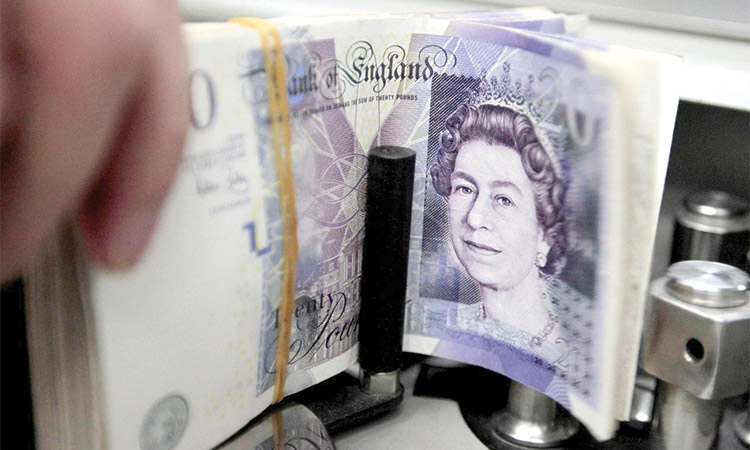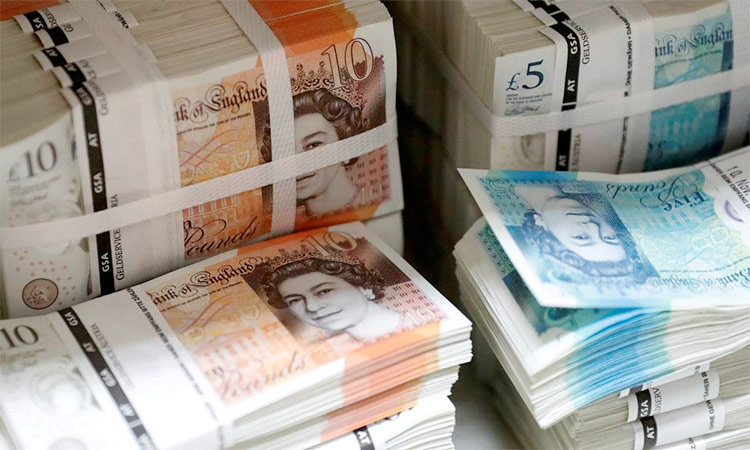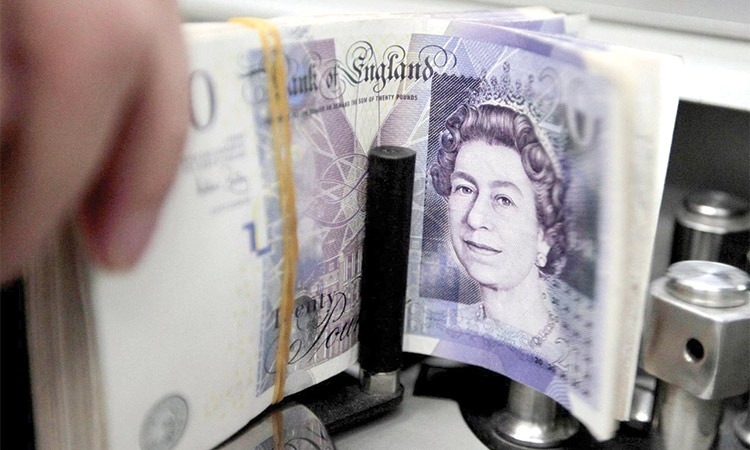Britain faces $57 billion fiscal hole

Picture used for illustrative purpose only.
Hunt is due to present a fiscal statement to parliament on Nov. 17. He will aim to restore financial market confidence after his predecessor Kwasi Kwarteng’s Sept. 23 tax-cutting plan pushed sterling to a record low against the US dollar and ultimately forced Liz Truss to resign as prime minister.
Britain’s Guardian newspaper reported on Sunday that early drafts of Hunt’s statement included up to 35 billion pounds of spending cuts and 25 billion pounds of tax rises, while on Monday the Financial Times gave figures of 33 billion pounds and 21 billion pounds respectively.
Asked about these estimates, two government sources told Reuters that they were within the right ballpark, but that final figures were subject to change.
Britain’s finance ministry declined to comment on the Guardian estimate on Sunday, and did not immediately respond to a request for comment on the FT estimate.
Last week a finance ministry source said broad-based tax rises were likely to fill a “fiscal black hole”.
Britain’s last set of budget forecasts was published in March, when they showed 28 billion pounds of headroom to meet a government target to reduce debt as a share of the economy.
Most of the 45 billion pounds of unfunded tax cuts which Kwarteng announced were rapidly reversed, apart from a 16 billion pound cut in payroll taxes which took effect on Nov. 6.
Short-term government borrowing costs are broadly back to where they were before Kwarteng’s statement, but longer-term borrowing costs are somewhat higher and the economic outlook is bleak.
Last Thursday the Bank of England forecast Britain was at risk of its longest recession in a century, though one much less deep than during the pandemic or after the 2008-09 financial crisis.
These forecasts assumed interest rates higher than the BoE says is likely, but did not factor in any fiscal tightening on Nov. 17.
Last month Britain’s Resolution Foundation estimated Hunt would need to announce 40 billion pounds of fiscal tightening to ensure public debt fell as a share of gross domestic product over the medium term, while also giving a 12 billion pound buffer against unexpected shocks.
Meanwhile, sterling rose on Monday, largely boosted by a softer dollar, which pushed the pound back up to levels seen before the Bank of England (BoE) delivered its biggest interest rate hike in three decades last week.
At 1000 GMT, the pound was up 0.61% against the dollar at $1.14405, and 0.35% higher versus the euro at 87.260 pence per euro.
The pound moved up as the dollar shed 0.522% by 1000 GMT, having earlier ticked up after China said it would stick with a strict COVID-19 containment strategy; news that initially saw investors flee to the safe-haven dollar.
The pound is trading roughly where it was in the run-up to Thursday’s decision by the Bank of England to raise its benchmark interest rate by 75 bps as it battles to bring down double-digit inflation. But analysts remain gloomy about the prospects for the currency given the economic outlook.
The BoE’s decision saw the pound fall as much as 2% and came with a warning that Britain is facing the risk of its longest recession in at least a century, but the central bank also said that borrowing costs may not rise as sharply as some expect.
British house prices fell in October at the fastest monthly rate since February 2021, a fresh sign of weakness in the housing market that reflects the fallout from the September “mini-budget”, mortgage lender Halifax said on Monday.
Former prime minister Liz Truss’s budget plan sent the UK gilt market into turmoil in late September, revealing vulnerabilities in some pension funds and other asset managers which were forced into quick-fire sales to raise cash for collateral amid the plunging value of bonds.
Speaking on Monday, BoE executive director Sarah Breeden said improving transparency in “non-banks” is a first step to applying lessons from last month’s turmoil in Britain’s government bond market, but more will need to be done.
British finance minister Jeremy Hunt will deliver his planned fiscal statement on Nov. 17, with indications there will be a squeeze on public spending and potentially higher taxes.







